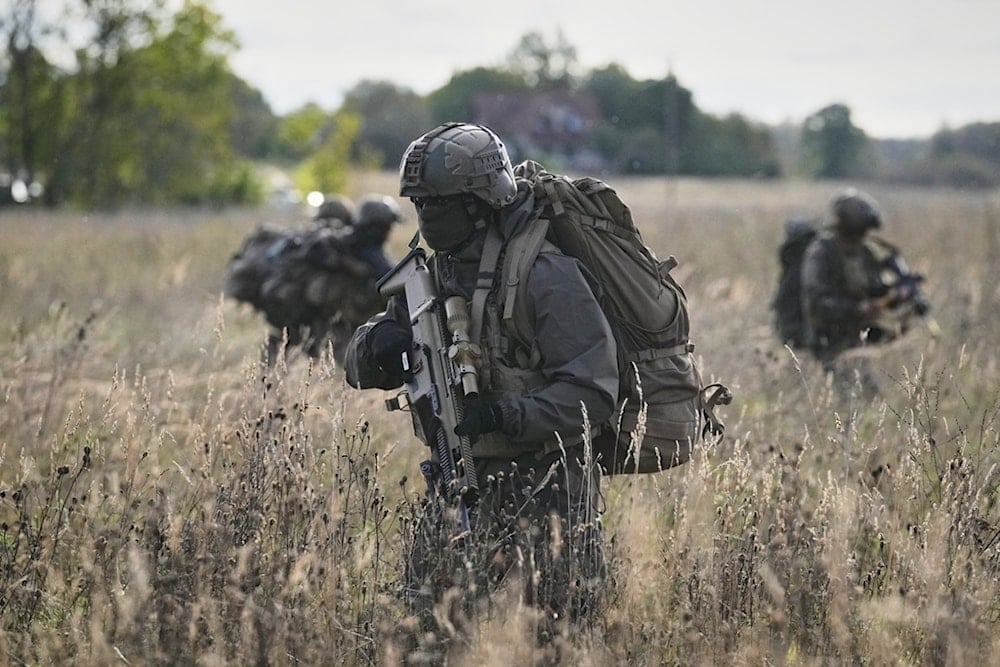SVR chief says NATO Europe preparing for war with Russia
Russia's intelligence chief Sergei Naryshkin's warning comes amid intensified Western military drills, arms procurements, and new defense measures across Europe.
-

French service members participate in multinational military Exercise Pikne ("Lightning") near Valkla, Estonia, Saturday, Sept. 27, 2025. (AP)
Russian Foreign Intelligence Service (SVR) Director Sergei Naryshkin has accused European NATO members of actively preparing for a military confrontation with Moscow, claiming that the alliance is strengthening its readiness and expanding its defense industry in anticipation of war.
Speaking at a meeting of security chiefs from the Commonwealth of Independent States (CIS) in Samarkand, Naryshkin noted that European members of NATO had been tasked with urgently supplying the bloc's Allied Reaction Force with all the resources it needs.
"We certainly see European NATO allies preparing for war with our country. The task has been set to quickly provide the NATO Allied Reaction Force designated for this purpose with all necessary resources. A process has been launched to significantly increase the output of the European military-industrial complex. Mobilization exercises and propaganda campaigns among the population about inevitable aggression from Moscow have become regular," he said.
Europe arms up
His remarks come amid a surge in Western military activity across Europe. Earlier this month, NATO launched its annual Steadfast Noon nuclear drills spanning the Netherlands, Belgium, the United Kingdom, and Denmark. The exercise, which involves 14 member states, tests nuclear deterrence operations and includes US aircraft certified to carry B61-12 tactical nuclear bombs. Officials described the drills as routine, though their timing has drawn attention amid heightened tensions with Russia and debates over the future of the US military presence in Europe.
Meanwhile, Germany is considering the purchase of 15 additional F-35A stealth fighters from Lockheed Martin, on top of its existing 35-jet order. The expanded fleet would strengthen Germany's role in NATO's nuclear-sharing arrangements, ensuring continued capability to deploy the US-made B61-12 bomb after the retirement of the aging Tornado aircraft. Defense planners say the increase will boost readiness and maintain deterrence capacity, but Moscow has viewed such moves as part of NATO's creeping militarization.
The United Kingdom has also announced new powers for its military to shoot down unidentified drones over bases, following a string of aerial incursions across northern Europe that governments have linked to Russia. British Defense Minister John Healey described the measures as necessary to defend against "escalating Russian aggression" and said Europe was facing "a new era of threat."
NATO escalation
For Moscow, these actions support its long-held view that NATO's expansion and rearmament directly threaten Russian security.
Naryshkin further claimed that European governments privately question whether the United States would honor its Article 5 obligations in the event of war, calling European ambitions to secure "strategic superiority" over Russia unrealistic without Washington's full commitment.
His comments reflect Russia's growing narrative that NATO's military buildup, nuclear readiness drills, and modernization programs are not defensive but preparatory measures for a wider confrontation.
Read more: Zelensky announces deal to buy 25 Patriots, open to Budapest talks

 3 Min Read
3 Min Read









